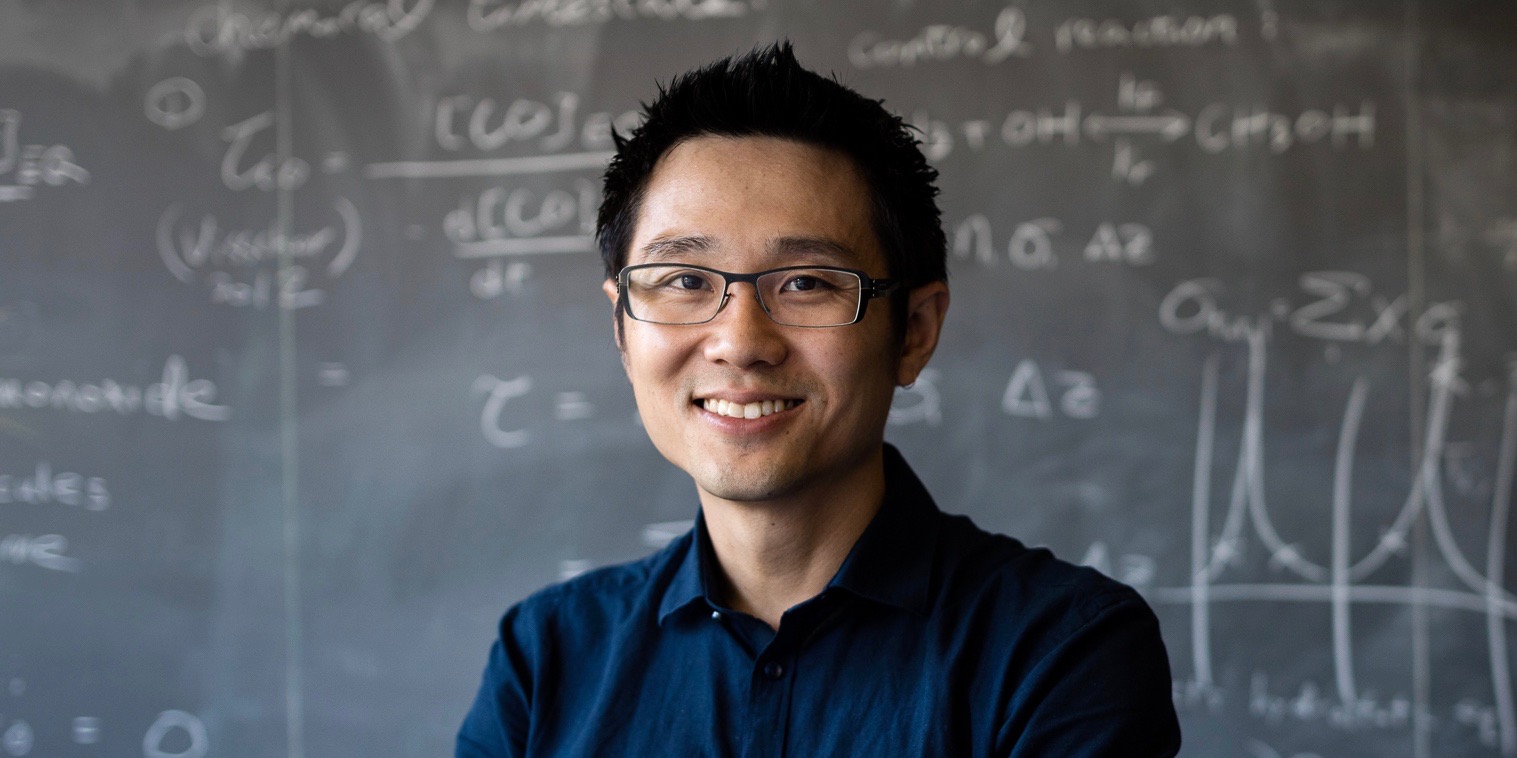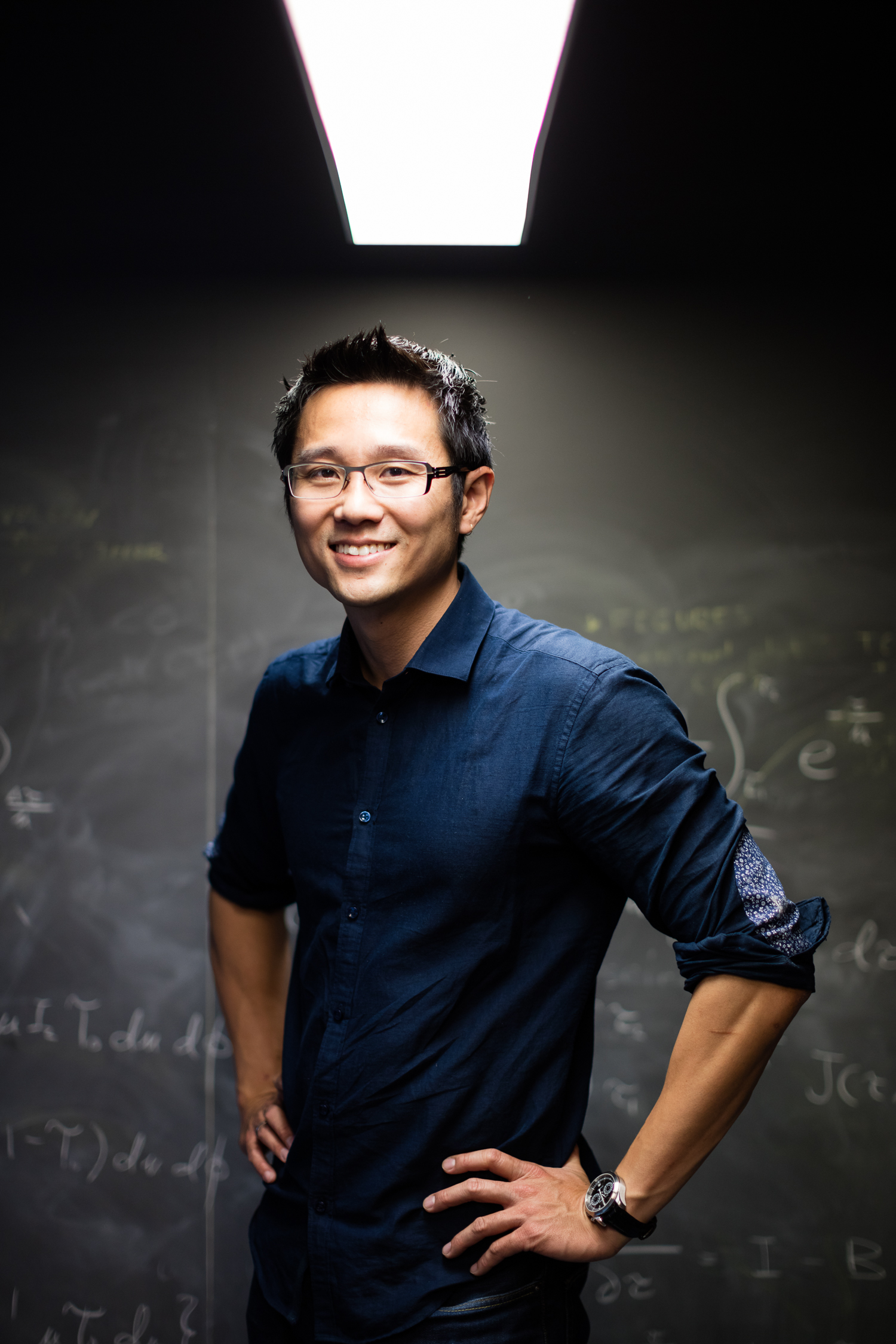Reconciling Philosophical Tensions Within Exoplanet Science


Kevin Heng, Director of the Center for Space and Habitability (CSH) of the University of Bern and member of the NCCR PlanetS. (Photo UNIBE/Alessandro Della Bella)
By Kevin Heng
PlanetS is forcing the unification of several schools of thoughts that are traditionally distinct, even if they share common interests. The study of planets within and beyond our Solar System is a topic that both planetary scientists and astronomers agree is immensely fascinating. From a distance, it appears as if these scientists exist as one coherent community, but you may be surprised that this is not the case in the details. Planetary scientists enjoy the privilege of sending probes to the planets and moons of our Solar System. Having high-definition images and even in-situ data, the scientific questions being asked tend to be more fine-grained. The demands of envisioning, planning, funding, designing and constructing these probes means that aerospace engineering is a major part of the process. Some planetary scientists dedicate their entire careers to seeing a space mission go from conception to fruition.
Exoplanet scientists, on the other hand, are an entirely different breed. Overwhelmingly, they tend to be astronomers or astrophysicists. (I will comment on this distinction later in this piece.) There are about a dozen exoplanet papers every day on the research archive — exoplanet science moves on a timescale of days to weeks, not decades, so there is a different way to read and review papers in this field. There is an entire, new generation of researchers being trained on the detection and characterisation of exoplanets using transit photometry (and spectrophotometry). Exoplanet enthusiasts are often derided by planetary scientists for working with sparse data, but it is simply because these exoplanets are located so far away — it is certainly not because of carelessness or a lack of trying. Until someone solves the problem of interstellar travel, astronomy will be the only way of asking questions about distant planets beyond our Solar System. The two communities even publish in different peer-reviewed journals. Astronomers and astrophysicists tend to favor Astronomy & Astrophysics (a European journal), Astrophysical or Astronomical Journal (American journals) or the Monthly Notices of the Royal Society (a British journal, which in its modern form is neither monthly nor in the form of a notice). Planetary scientists report their findings in Icarus, Planetary & Space Science, Journal of Geophysical Research, etc. Very often, there is little to no overlap between the editors and reviewers of these two bodies of journals.
Within the Solar System, we know a lot of information about a relatively small number of objects. For exoplanets, we know very little about a large collection of objects. Understandably, there is a tension between the types of scientific questions we will ask. Planetary science questions tend to be more detailed, e.g., Is the size of the polar ice cap on Mars changing? No exoplanet scientist worth her or his salt would ask that of the astronomical data, because that question is not falsifiable. Instead, exoplanet questions tend to be statistical and broad-brush, e.g., what is the radius at which most exoplanets transition from being rocky to gaseous? Another major debate is regarding the relevance of the Solar System. On one hand, lessons about Jupiter and Earth could provide useful benchmarks as we extrapolate to the exoplanets. On the other hand, we may be in the situation of the drunkard looking for her or his keys under the nearest lamp — the current data is hinting that the Solar System is not representative of the exoplanet population and architecture in our cosmic neighbourhood. The key challenge is to translate all of this rich information into knowledge and general principles. Planetary and exoplanet scientists need to understand and accept these philosophical differences in inquiry between the two fields, instead of confusing data precision with the importance of the scientific question. The focus should be on the scientific question being asked, and whether it is meaningful.
Another source of tension concerns the division of labour within each field. In astronomy and astrophysics, there is a traditional division into theory, observation and instrumentation. (I am unabashedly a theoretician.) There are rare and distinguished individuals, such as James Gunn of Princeton, who have made seminal contributions to all three subfields, but it is more likely, in these modern times, that an individual researcher contributes mainly and decisively to either theory, observation or instrumentation. Here, I use a specific set of terminology that is not universally accepted: I tend to call theoreticians or theorists “astrophysicists” and folks who use telescopes “astronomers”. In practice, most exoplanet researchers are some hybrid of the two. There is a fair amount of misunderstanding about what the other does. Just as the mere turning of a screw does not make me an engineer, the running of a numerical model on a computer does not make one a theoretician. A theoretician’s job is to think carefully about the assumptions, caveats and limitations of a model, and then design one to either address a specific hypothesis or interpret data in a falsifiable way. A good theoretician knows when a model fails, the degree to which it is based on first principles, and the difference between being simple versus simplistic. A great theoretician knows if the question being asked is worth answering. I am certain that there are intricacies to the job of an observer or an engineer that I do not fully appreciate as well.
And this is the wonderful thing about PlanetS — it is a framework where all of these diverse schools of thought are coming together and often being reconciled. My hope is that the next breed of exoplanet scientist, who will emerge from PlanetS, will equip herself or himself not just with a diverse set of problem-solving skills, but a deep appreciation of these philosophical or meta-scientific tensions within the fields of planetary and exoplanetary science. It is only with an interdisciplinary mindset that we have a fighting chance of answering deep, astrobiological questions about worlds beyond Earth.
Categories: Internal Newsletter
